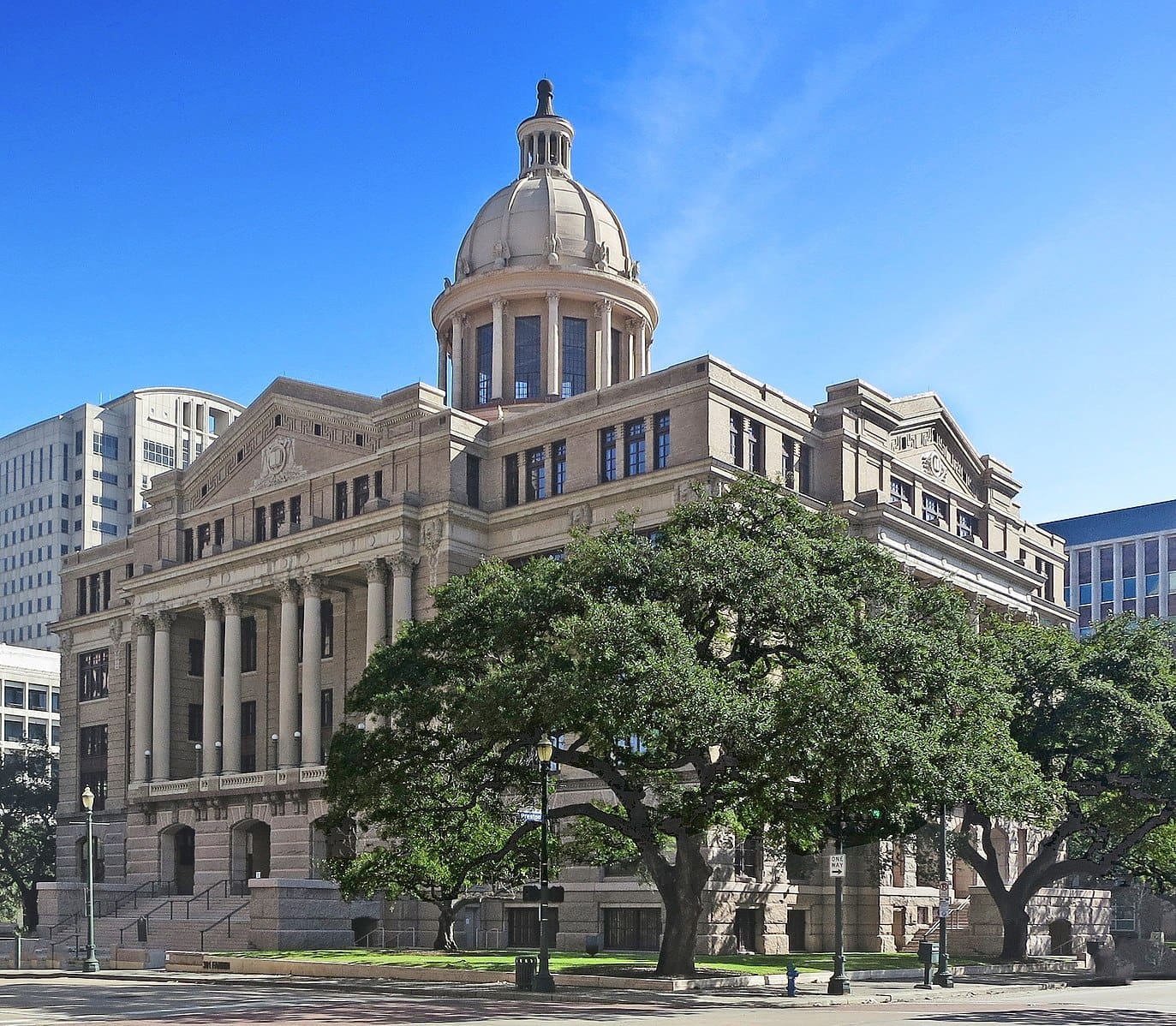Contrary to narrative spin, local governments wield significant power over the agencies that assign your home’s taxable value. This statewide apparatus costs more than $585 million, and is rife with conflicts of interest where high tax collecting local governments maintain local control over taxpayers.
“Commercial property owner called to state ‘The ARB did not grant sufficient relief based on the 2020 economic downturn due to Covid-19.” That was a March 2021 complaint from a property owner within Harris County, which Texas Scorecard obtained from the Texas comptroller. Such is the state of things that state and local public servants have successfully hoodwinked taxpayers into believing that appraisal districts and appraisal review boards are the leading cause of their rising property tax bills. Even Gov. Greg Abbott (R) parroted this misleading narrative in his debate with failed Democrat candidate Robert Francis O’Rourke.
The fact is that the Texas Legislature created a shell game of misdirection that focuses taxpayer anger at the appraisal district and the appraisal protest system.
However, appraisal districts are partners with city councils, county commissioners courts, school boards, and other local governments in a tax-hiking cartel that’s bleeding homeowners’ and renters’ wallets dry. The Texas Legislature is the most senior partner, as it created this cartel.
Recap
As previously reported by Texas Scorecard, both in this series and in many articles covering property taxes, appraisal districts set the taxable value of your property, be it your home or place of business. For renters, they assign the taxable value of your residence.
Local governing bodies (city councils, county commissioners, school board trustees, etc.) set your property tax bill by deciding what tax rate to multiply the taxable value the appraisal district assigned to your property.
“The local taxing entities are the ones who have complete responsibility for the rising property taxes in the state of Texas,” State Rep. Brian Harrison (R–Waxahachie) told Texas Scorecard.
Local public servants always have the power of lowering tax bills because they set the tax rate. At the very minimum they can largely cancel out year-to-year fluctuations in assigned taxable values by adopting the no-new-revenue rate.
Few appear to even be aware of the existence of the no-new-revenue rate. “Never heard of it,” McClennan County taxpayer Patrick Schroeder told Texas Scorecard when asked about it. “When did this go into effect?” asked retired Denton County taxpayer Diane Covey.
Local Control
As former Colleyville Mayor Richard Newton has pointed out before, local public servants tend to blame appraisal districts for rising property tax bills. Newton has said such arguments don’t hold water as appraisal districts don’t set the property tax rate; the local public servants do.
And yet, local public servants continue to point fingers.
“Every branch of government, whether it’s a political subdivision, that’s always their go-to is point the finger at someone else,” Texans for Fiscal Responsibility CEO Tim Hardin said.
However, local governments wield tremendous power over these bodies. Every appraisal district has a board of directors that governs it. This board hires the chief appraiser who runs the appraisal district. State law dictates that the local governments—not citizens—assign who sits on these boards. Such a system insulates appraisal districts, formalizing them as part of a good old boy network where part of our taxation process has no representation.
This is just the system North Texas realtor and property tax fighter Chandler Crouch encountered with the Tarrant Appraisal District.
In a December 2019 commentary, Crouch alerted an unsuspecting public that an election was underway for the TAD Board of Directors and warned them of how “massively flawed” the process is. He found that only one school district was highly active in nominating candidates, White Settlement ISD, where at one point, TAD Bureaucrat Randy Armstrong served as a school board trustee. State law has since been changed to ban that and similar conflicts of interest. However, there is further proof that there is still a lack of representation in the taxation process. Rather, it is elected officials who are represented.
That wasn’t all, as the Tarrant County Commissioners Court typically would play the role of kingmaker. Crouch equated it to an eBay bidding period, where most bidders had to make their bids early, while a wealthy bidder could wait until the last few moments before the end of the bidding time. “Except instead of money, we’re talking about votes, and the entity with the power and ability to vote at the last second is the Tarrant County Commissioner’s Court.”
Crouch was successful in leading a grassroots campaign to rock the 2019 election, leading to citizens effectively pressuring public servants to appoint three newcomers to the TAD Board. He was also instrumental in the Texas Legislature banning elected public servants from being employed at appraisal districts, and forcing a board election to occur simultaneously instead of spaced out so that larger local governments could tip the scales.
However, such victories are not yet universal. Craig Hundley, a small businessman in Johnson County, has been fighting for years to get taxpayer representation on the board of the Johnson County Central Appraisal District. “Your local CAD boards, in every 254 districts, they’re about as secret as you can get,” Hundley told Texas Scorecard. “I’ve went and spoke to school boards, I went and talked to city councils, just trying to get a normal citizen on a CAD Board. I’m telling you, it is impossible.”
Tyranny of the Tax Hikers
How the Texas Legislature set up the election of the board of directors for appraisal districts rewards those who collect the most taxes.
State law dictates the five voting members of the board are nominated and elected by other local governments (city councils, county commissioners courts, school board members, etc.), not citizens. Local governments may also increase the number of board members to a maximum of 13.
Not only are taxpayers cut out of this process, but the election process itself, as set up by the Texas Legislature, is convoluted.
State law requires the voting power of each local government in electing board members to the appraisal district is determined by how much it collected in property taxes relative to all the other local governments that are able to vote. The chief appraiser, who administers the appraisal district, performs a complex series of calculations, and then notifies each of the local governments what their share of the voting pie is. He sends these notifications out “before October 1 of each odd-numbered year.”
“The quantity of votes that you’re allowed is based upon the value of the property within the boundaries of your entity,” Pat Jacobs, mayor of the North Texas city Lakeside, told Texas Scorecard. “Lakeside is a tiny municipality, and normally we get one vote, just like any others. Others will get two [or] three votes.” He pointed out that in Lakeside’s case, Tarrant Appraisal District Chief Appraiser Jeff Law, who is accountable to the TAD board of directors, is the one who decides who gets what vote percentages there.
State law states chief appraisers are “appointed by and serves at the pleasure of the appraisal district board of directors.” In practice, the Texas Legislature has created a system where local public servants who take the most from taxpayers seem to have the most control.
In response to an open records request, Texas Scorecard obtained the vote tallies of the Tarrant Appraisal District’s Board elections in 2017, 2019, and 2021. These records show that, by far, the largest local governments have the largest vote share in appointing TAD board members.
In the 2021 election, of the 5005 total votes available, 2,190 were distributed among the Tarrant County Commissioners Court, Fort Worth City Council, and the school boards of Fort Worth ISD and Arlington ISD. Meaning these high-taxing governments wielded 43 percent of the vote share. In 2019, it was roughly 42 percent.
While not a majority, such a system does give these particular governing bodies the ability to position their preferred candidates for victory.
What’s more, Crouch said that in his experience with the board elections of the Tarrant Appraisal District, not all the local governments in the area even get a vote. “It’s messed up.” Crouch provided a copy of the 2021 vote tally for the TAD Board, which showed that multiple local governments had not voted.
Texas Scorecard compared this with the record received by TAD. While there were discrepancies between the two documents, both show no votes recorded from Godley ISD, the cities of Flower Mound, Blue Mound, Dalworthington Gardens, Lakeside, Pantego, Trophy Club, and six more. This same record stated that Roanoke tried casting a single vote, “but the number of votes to which the city is entitled is 0.”
Lakeside Mayor Pat Jacobs wasn’t happy that the city’s public servants did not get a vote in the 2021 TAD election. He said 2021 was the first time in his 12 years as mayor that the Lakeside City Council didn’t get a vote in the TAD Board of Directors election. “We didn’t apparently meet a threshold on property value. Now my constituents might have something to say about that.” To ensure it doesn’t happen again, Jacobs said he has added language into proposed legislation for this session “to make sure that everybody gets to take a look at the whole election process in general, and find a way to make it more equitable.” He asked state lawmakers to introduce it in the Texas Legislature.
Jacobs laughed in agreement when Texas Scorecard asked him if the current TAD board election system feels like the larger taxing local governments overwhelm the voice of the smaller ones. “Drowned out as a small entity versus a larger entity, with a smaller value tax base versus somebody like a Fort Worth School District, which has a much larger geographic area and a much larger tax base? Yes.”
Texas Scorecard sent an inquiry to TAD Chief Appraiser Jeff Law about this issue, asking about the way in which these votes are divvied out amongst the local governments. We also asked Law if these same local governments listed above would be excluded from participation in the next upcoming TAD board election.
Law replied that state law determines how appraisal districts are to calculate each local government’s share of the voting pie. He pointed to Section 6.03(d) of the Texas Property Tax Code.
“For the Town of Lakeside, their preceding years taxes were approximately $666,431. The total amount of taxes imposed in the district was $4,863,317,786. Dividing 666,431 by 4,863,317,786 yields a quotient of 0.000137032172. Multiplying this quotient by 1,000 equals 0.137032. Rounding this number to the nearest whole number equals 0,” Law continued. “This method was used for all taxing unit in the last voting entitlement calculation.”
Law did admit, however, the Lakeside did get to vote before. “It does appear that in the past Lakeside was provided 1 vote. I believe that was due to not rounding to the nearest whole number. For the 2021 voting time frame, TAD went back and reviewed the process to make sure the voting calculations for all taxing unites were being followed strictly with how the law was written. All future voting allocations will follow this same calculation process.”
Texas Scorecard asked Law what triggered the change that led to Lakeside losing its vote. “The appointment process was being watched by some taxing units and individuals closely, so TAD believed it was prudent to review all that we were doing to ensure the laws pertaining to the process were being followed,” he replied.
This is not just a Tarrant County issue. A similar biased system appears to be in play for the board elections of the Bexar Central Appraisal District in South Texas.
In their 2022-2023 election, of the more than 4,800 votes distributed among the 41 local governing bodies voting, 69 percent of the vote was cast by four local governments: the San Antonio City Council, Bexar County Commissioners Court, and the school boards of Northside ISD and North East ISD. In the 2020-2021 election, the vote share was roughly 75 percent.
This biased and unbalanced system appears in rural areas, too, like the Bastrop Central Appraisal District, located southeast of Austin. According to their board election tallies, the Bastrop ISD school board and the county commissioners had 70 percent of the vote share in the 2021 and 2019 board elections.
Then there’s the Nacogdoches Central Appraisal District. In their 2020-2021 and 2022-2023 board elections, 5000 votes were distributed amongst the 13 local governing bodies there. In both elections, three of these held 80 percent of the vote share. Namely, the Nacogdoches County Commissioners Court, Nacogdoches City Council, and the school board of Nacogdoches ISD.
This system appears to operate in a form that is the opposite of the electoral college, which in the American presidential election system was designed to give smaller states the ability to check the larger ones. While Thomas Jefferson warned of a “tyranny of the majority,“ in this case, this represents a tyranny of greedy governments over the taxpayers.
Fragmented Elections
In the fight for election integrity in Texas, arguments were made for uniform standards throughout the state as a way to secure the election process. No such standards appear to be in place when it comes to the elections of appraisal district boards.
Indeed, according to state law, with some restrictions, the process by which board members of appraisal districts are elected can be changed. This process can be triggered by the board itself, or three-fourths of the voting local governments.
In the other appraisal districts seen above, there are records of local governing bodies divvying their assigned voting numbers to back candidates of their choice. But in the case of the Harris Central Appraisal District, the larger governing bodies directly appoint their own representatives to the board. Harris County Commissioners Court, Houston City Council, and Houston ISD trustee board each have a board member they picked to represent their interests.
A similar process seems to be in play in the election for the Dallas Central Appraisal District.
Through an open records request, Texas Scorecard obtained the vote tallies in the elections for the 2018-2019, 2020-2021, and 2022-2023 terms of office. According to these records, the school board of Dallas ISD, the Dallas County Commissioners Court, and the Dallas City Council each appoint a representative outright. The remaining 46 local governing bodies nominate and vote for candidates. There does not appear to be a number of votes disseminated among these governments. Rather, they each get one vote, and whichever candidates get the most local governments voting for him or her wins.
There is also a clear, but as yet not illegal, conflict of interest here. In the elections for the 2020-2021 and 2022-2023 terms of office for the Board of the Dallas Central Appraisal District, the school board of Dallas ISD appointed their fellow board member, Dr. Edwin Flores. Flores was defeated in his 2022 bid for the Republican nomination for Dallas County Judge by mom and businesswoman Lauren Davis.
“It would be crazy to think that local political subdivisions that make appointments to the appraisal district would appoint people who would run an ethical system that’s going to result in less tax revenue,” Texans for Fiscal Responsibility CEO Hardin said. “It’s just a conflict of interest, which is why the whole system is broken.”
In a further sign of brokenness, there apparently is not a uniform standard of reporting for these election results statewide. In the case of the Travis Central Appraisal District, Texas Scorecard sent an open records request seeking records of election results and vote tallies for the appraisal district board from 2018 to 2022. Other appraisal districts provided rather easily digestible spreadsheets that simply and clearly showed vote totals per local governing body. But TCAD returned PDF files that total 49 pages (2018, 2019, and 2021). These contained individual letters from local governing bodies notifying TCAD of which candidates got how many votes from them.
“There is no uniformity to it,” Lakeside Mayor Pat Jacobs said of the process based on his own experience. “From my observations it’s just every chief appraiser rolls it up and puts it together differently.”
Local Control Funding
Not only do high tax collecting local governments control appraisal districts, but they also are their source of money.
As always, when it comes to government, business is good. According to information from the Texas comptroller, the grand total of funds in all appraisal district budgets for 2021 was over $585 million.
State law dictates that “each taxing unit shall pay its allocation” to the appraisal district. How much each local government must pay is, like its voting share in, calculated by how much they collect in property taxes compared with the other local governments within the area of that particular appraisal district.
Texas Scorecard sent the Tarrant Appraisal District an open records request for comprehensive annual financial reports (CAFR) and audits of the district for 2016 to 2022. Page 26 of the records received, for their December 2016 CAFR, reported that 98 percent of their revenues before refunds “came from taxing entity assessments.” That means the local governments. In their December 2021 CAFR, that number was 97 percent.
Similar percentages were found elsewhere. The Travis Central Appraisal District’s Fiscal Year 2022 budget shows that 99 percent of their revenues came from the local governments within their area.
The 2022 Final Budget for the Harris Central Appraisal District in Harris County provides a very transparent picture of which local government gives them the biggest hauls of taxpayer money.
Harris County Commissioners, Houston City Council, and the Houston ISD School Board account for roughly 43 percent of HCAD’s more than $94 million haul. All of course to figure out how high a taxable value should be assigned to taxpayers’ properties.
Where Does The Comptroller Fit In?
While the Texas Legislature created the state’s tax-hiking cartel of local governments and appraisal districts, a subject matter specialist has said the Texas comptroller—currently Republican Glenn Hegar—also plays a part. Specifically, this individual points to the Property Value Study the comptroller’s office publishes that is a key factor in appraisal districts hiking the taxable values of properties across the state.
“I didn’t even pay attention to what the comptroller did or didn’t do,” Michael Berlanga told Texas Scorecard. A CPA and real estate broker, Berlanga once ran for county tax assessor-collector in Bexar County in southwest Texas. Like Chandler Crouch, Berlanga says he helps property taxpayers for free, and has conducted a property tax seminar. “My opinion of the property value study first originated when the chief appraiser in Jim Wells County, basically, in the midst of a hearing, complaining that the property values are going up because they have to conform to the property value studies, or their school districts will be penalized.”
Berlanga shared how the relationships of all the state and local governments collude together into a tax-hiking cartel that targets Texans’ wallets.
“Those who are most motivated to collect ‘the most taxes’ to keep up with their growing need for budgets are the ones who are hiring the chief appraisers. That puts the chief appraisers in a precarious position of being at the mercy of taxing jurisdictions,” he said. “If that isn’t enough pressure, it’s then enhanced by these property values studies that the Comptroller’s office does every two years to validate, or to prove the values that the chief appraiser comes up with locally are not lower than what the Comptroller’s Property Tax Division has dictated they should be.”
Texas Scorecard sent an inquiry to the Texas comptroller’s office about this matter. No response was received before publication time.
An April 22, 2022 report by Community Impact documented an incident in Travis County where the Texas comptroller tugged the leash. The head of the Travis Central Appraisal District was picked by several school districts to protest the Texas comptroller’s Property Value Study. That study had deemed each of those school districts as “invalid” in the 2021 tax year, because of an over 5 percent difference between the values the appraisal district assigned and those assigned by the Texas comptroller. The article states if the protest fails and the “invalid” ruling stays, then the appraisal district will have to adopt the state’s property values for the area.
Rat Race
Much of this article has gone in depth to show who really controls the appraisal districts that public servants blame for higher taxes. Most activated property taxpayers spend much effort protesting the taxable property values assigned by their appraisal district. But do successful protests actually lower property tax bills from the previous year or merely control its growth?
“It would depend,” economist Vance Ginn told Texas Scorecard. “The property tax bill comes from a combination of the appraisal and your tax rate. Depending on what the tax rate does, that may raise or lower your property tax bill.”
He noted that even if you win your protest, the appraisal will still increase.
“I have seen my appraisal; instead of going up nine percent; it might go up seven or eight percent.” Ginn also explained that there’s the homestead exemption for your primary residence that caps appraisal increases year to year at 10 percent. “A lot of times, especially right now, with home prices increasing at such a rapid pace, a lot of people are being capped out at that maximum 10 percent. Even if you protest right now, you’re unlikely to get it reduced.”
When it comes to property tax relief, where should property taxpayers spend most of their energies?
“The research that I’ve done has said that, look, the appraisal part isn’t where the focus should be,” Ginn said. “The local entities are the ones who are determining how much you’re going to pay in property taxes; it’s not the appraisal portion.”
Serving Politicians, Not Taxpayers
HCAD’s budget puts it nicely. “The Harris County Appraisal District is funded by the taxing units it serves.”
Chandler Crouch breaks it down even more. “There are cultural problems that exist inside appraisal districts, because the appraisal districts are not accountable to the taxpayer,” he told Texas Scorecard. “The appraisal district needs to be held accountable by the people, and we have to look to our legislature to make that change happen. Without the legislature taking action to create that accountability structure, then these cultural issues are going to exist forever.”
But history shows focusing on appraisal districts alone are pinprick efforts against local governments’ engorgement on the blood, sweat, and tears of hardworking taxpayers.
“I watched the recent debate with Francis O’Rourke and I heard Governor Abbott mention something about fixing the appraisal system as a way to reduce property taxes,” Clint Caldwell of Sulphur Springs wrote Gov. Greg Abbott on October 2, 2022. “We were shocked when our property taxes doubled. How is fixing the appraisal system going to help reduce property taxes?” Texas Scorecard obtained this complaint through an open records request to the governor’s office.
In Part 3 of this series, Texas Scorecard will investigate how the pinprick battle of increasing property tax exemptions doesn’t bring taxpayers the relief they need. We will also look into how appraisal districts act as gatekeepers of who does and does not get this little trickle of help.





